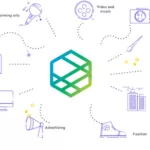Are your employees not excited about coming to work? Are they struggling to update their skill sets as technology changes and memory fades? Education cannot be crammed into four years of school, so many companies emphasize the importance of continued training. However, professional development programs sometimes fall short: they do not account for individual learners, they are used as punishment for poor performance, or they take up too much of students’ time. If you want to offer an effective adult education program that genuinely improves your employees’ productivity and job satisfaction, here are a few steps you can take.
Remember that groups are made of individuals
People sometimes feel embarrassed that they even need additional training. Cultivating an environment that promotes learning, however, alleviates a great deal employees’ hesitancy to admit that their skills need polishing. When everyone is in the same boat, team members can lean on one another for support and ask for assistance when they do not understand something. A judgment-free atmosphere makes employees excited to learn because knowledge is encouraged, and everyone can set common goals.
Remember that everyone learns differently, though. Some people are kinetic learners, visual, auditory, or beyond—so do not offer tools that only appeal to one kind. What a visual person thinks is useful will be different from an auditory one, so the latter may find diagram-based materials frustrating or unsatisfactory. If you want employees to know that you care about their education—and if you want to make them care about their own—approach them like individuals so that each person will feel like their work is valued.
Find a balance
No one wants to fall behind, but the possibility is continuously growing. No one wants to suffer from information overload, either—so to avoid emotionally and intellectually draining employees, make sure that you find a balance between the right amount and too much information. Overdoing training programs will make them feel taxing, discouraging people from enjoying participation.
Take advantage of e-learning
Not all of your employees have time for in-classroom training courses, and people learn at different paces. Online tools make education accessible, so students can learn from the comfort of their own homes whenever their schedules allow it.
One source you can turn to is SuccessLife. A subsidiary of Success Resources, SuccessLife is a blockchain-based platform that hosts an immense library of audio, video, and written content relevant to a vast array of subjects. If you want your employees to sharpen their financial intelligence, business strategy, or technological skills, SuccessLife is a go-to outlet that’s available for anyone with an internet connection. The subjects do not stop there, either: SuccessLife also contains materials related to more emotional and inspirational topics so that students can glean joy from their work besides productivity.
Not all SuccessLife material is original. The platform is open to third-parties with any sort of personal or professional development wisdom to share. One of e-learning’s benefits is a customizable experience, so by opening the system to everyone, SuccessLife creates a more accurately tailored education for its users’ needs.
Some examples
British company AAT released a report, “Want Your Staff to Stay? Make Training a Priority,” which details some strategies you can adopt. AAT notes what the mega-company Siemens did, which employs over 20,000 people in the UK alone:
“As well as a standard introduction program for all new staff, Siemens offers three development programs aimed at entry level staff—apprenticeships, the Siemens Commercial Academy for financial and commercial staff, and the Siemens Graduate Program. All there combine on-the-job training and off-site training and give workers the opportunity to work towards recognized industry qualifications.”
Siemens uses a Performance Management Process to identify employees’ developmental needs and create appropriate training. Similarly, the company Aldi assigns new employees “mentors” for their first few weeks on the job, and Tesco conducts biannual assessments to determine who would benefit from further training and in what areas.
Continued education is always necessary. Even if employees have been with the same company for over 30 years, the world advances at such a rate that no one’s initial four-year degree or high school diploma can carry them all the way through their careers. If you want employees that are adept, productive, and happy with their jobs, you need to approach them individually, setting them up for their success—not just yours.








